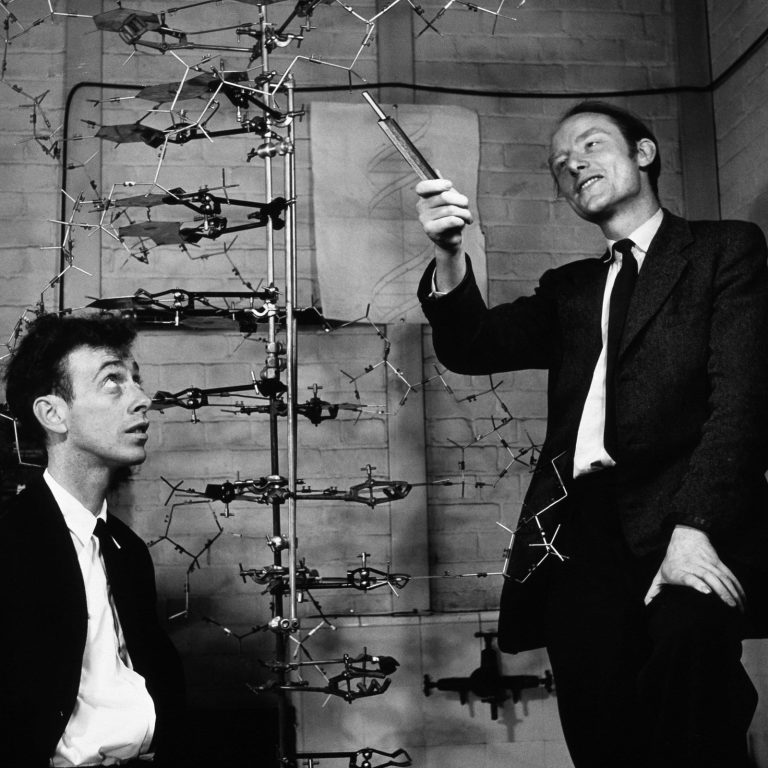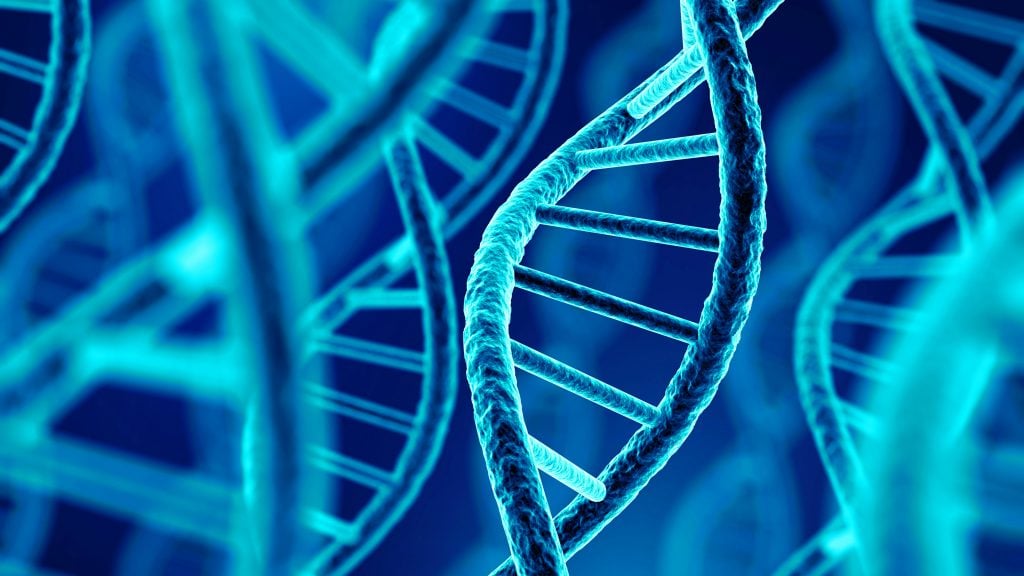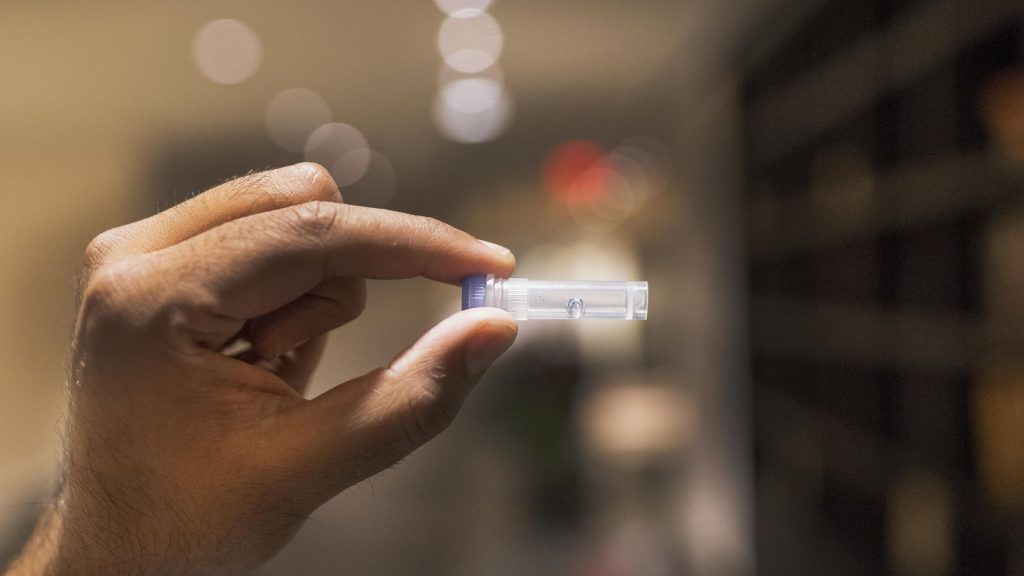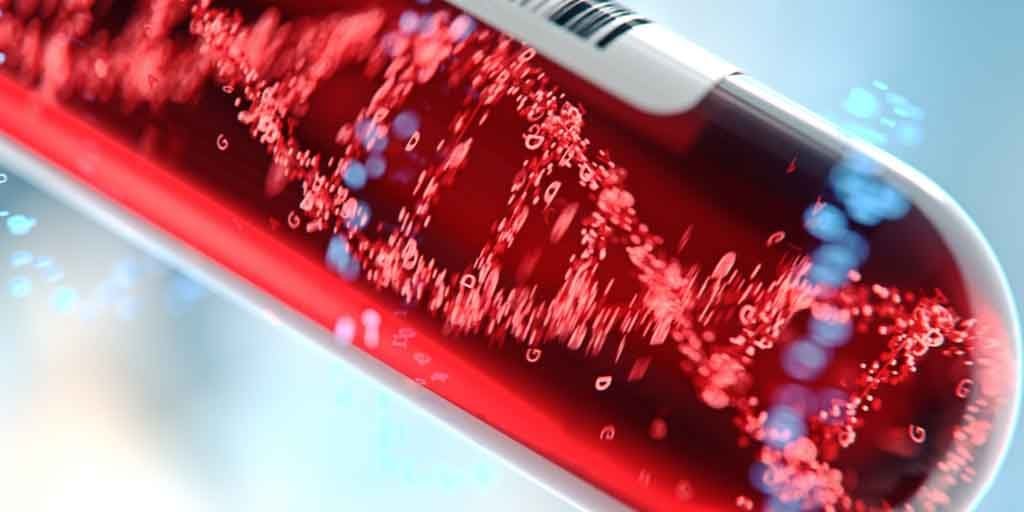Bitcoin Cold Storage in DNA

Savvy Bitcoiners know: whoever controls keys and passphrases, controls the coins. As cryptocurrency becomes part of everyday life and investment, enthusiasts are increasingly searching for unique, secure ways to store access to their digital assets. Enter Carverr, the startup claiming to keep passwords and keys in a microtube of deoxyribonucleic acid (DNA). It’s just so crazy sounding it might work.
Also read: Venezuela Loves Dash: Altcoin Surges 30% on Adoption Push
Store Bitcoin Passwords in DNA
Some keep them on hard drives; others, paper, separated, and in two locations. Still others employ complex safety deposit box schemes. Indeed, as cryptocurrency takes on greater significance in more financial plans, what to do with essential access to it becomes of utmost importance.
Carverr is offering what it calls a “DNA-based cold storage for digital currencies. Our system is the safest method of cold storage on the planet, developed by a group of experienced asset managers and biotechnologists.” They believe their storage idea is one of a kind, transforming “data from digital information to biological, and therefore requires no software updates or internet connection,” according to their website.

Cold storage, the practice of keeping crypto details away from a ‘hot’ wallet, one connected to the internet, seems to a safer practice all around. Though not entirely foolproof, coming with its own challenges, cold storage is the preferred method for security minded enthusiasts. “Since it lives off-line,” the company explains, “it is protected from hackers and because your code is contained in a strand of DNA it can never become obsolete, unlike other cold storage wallets. Even storing your digital codes in-offline servers in a mountain means at some point, those servers will become obsolete and require updates. Carverr’s DNA system is a one and done solution that ensures your code outlives you.”
Clients begin their DNA storage journey by the most dangerous of possible scenarios: they send either their “passcode, passphrase or private key” to the company. “This is done through an encrypted messaging service based in Switzerland. You don’t need to tell us what your passcode is for,” Carverr notes. “Feel free to alter your code before sending it to us. We do not verify the context of your passcode, we only convert whatever code you provide to us into DNA.”

No Way Watson and Crick Could’ve Imagined This
Remembering back to biology class, readers might recall nucleic acids chain together, their bases of four making a DNA strand: adenine, cytosine, guanine, thymine. Shorthand reads A, C, G, T, respectively. Carverr uses “a special algorithm to convert your digital code (1s and 0s) into a string of bases consisting of As, Ts, Cs, and Gs, i.e. DNA. Your code is checked numerous times for accuracy. Carverr then manufactures a strand of synthetic DNA, using the string of bases. DNA manufacturing is a tried-and-true method dating back to the 1950s.”
Indeed, it was in 1953 two Cambridge researchers, James Watson and Francis Crick, identified DNA’s molecular structure. DNA has gained traction in recent years as a keen method of providing a unique identifier to catch baddies; and within the last 20 years it has been advanced in the quest to map the human genome. It’s probably safe to assume no one 6 plus decades ago could have imagined it as a digital currency storage mechanism.

“We utilize a number of manufacturing partners who produce hundreds of thousands of base pairs per day, for use in biomedical and agricultural applications. All of these sectors require extreme precision, which is why exhaustive quality checks are performed,” they stressed. “Once your test tube is ready, it can be shipped back to you, or you can elect to have Carverr store it on your behalf. Currently, your data is best suited for storage in a freezer (4° C), however, a shelf stable version is currently in development.”
Users of the DNA cold storage service are also able to receive data retrieval support. “Data retrieval takes about 48-72 hours from the time of the request. It may take longer if you decide to store your data yourself. We retrieve the code by sequencing your DNA and then de-coding the information to retrieve your password. The password is then transmitted back to you through our secure communication channel,” the company urges. “Unlike electronic devices, DNA will never become obsolete. Reading and writing DNA will always be relevant; therefore, there is no need for software patches, updates or new hardware.”
Would you use DNA for cold storage? Let us know in the comments below.
Images via Pixabay.
We’re celebrating Bitcoin Journalist Pioneer Jamie Redman’s work. Check out Jamie Redman’s author archives. It’s an encyclopedia, a living history of crypto.
The post Bitcoin Cold Storage in DNA appeared first on Bitcoin News.
from Bitcoin News https://ift.tt/2MENOGg
Comments
Post a Comment